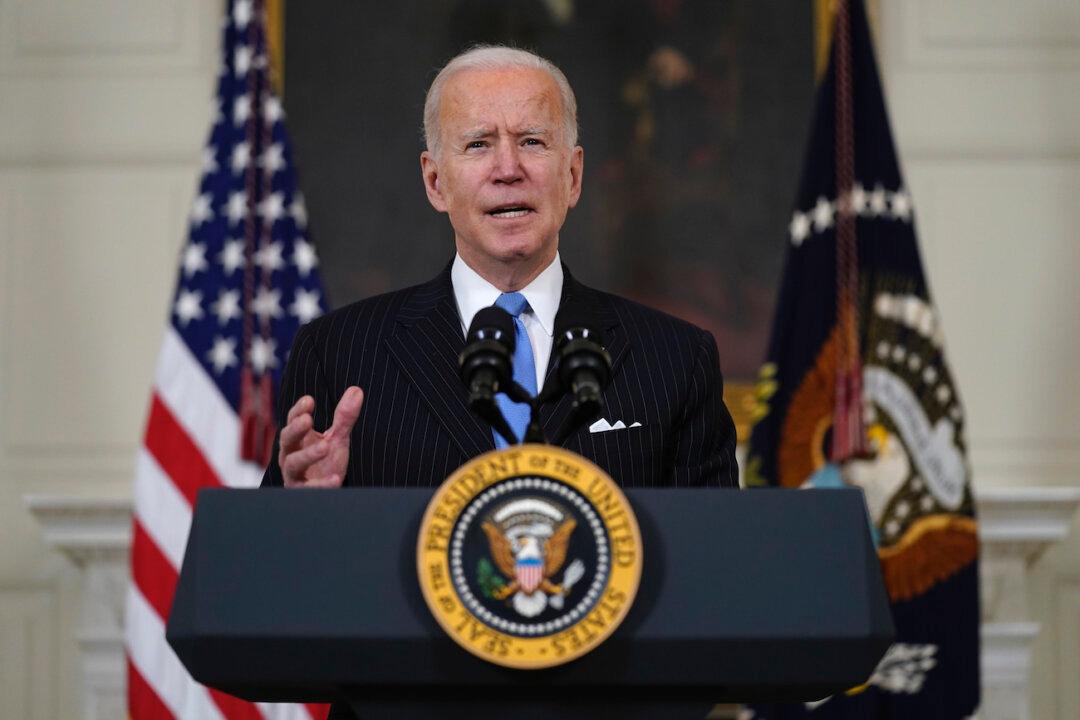President Joe Biden and Senate Democrats reached a deal on key provisions of the COVID-19 relief bill on March 3 that will see the pandemic unemployment benefit top-up stay at $400 through August, while eligibility thresholds for the $1,400 direct payments to U.S. families will be tighter.
White House press secretary Jen Psaki was asked at a March 3 briefing to confirm if Biden had signed off on reduced income thresholds for the $1,400 direct payments, namely starting the ramp at $75,000 for individuals and $150,000 for joint filers, and phasing it out to zero at $80,000 for individuals and $160,000 for joint filers, respectively.





